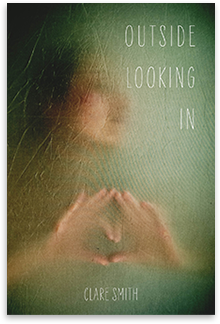
The Fear of the Blank Page
Every poet, every author knows this. They may not admit to it – or
not in public – but if they’re human they’ll suffer from time to time.
Either they’ve got what’s usually called writers’ block, or they’re so
unruffled, so contented with life, so busy with other stuff that the
muse can’t find a foothold.
Not that you have to be miserable to write – you can be as filled with
ecstasy or joy as with anger or cynicism or pain or fear – but those
middling emotions like contentment, tiredness and amusement tend not to
produce poetry. Or at least not very good poetry.
I know there’s a place for doggerel (I’ve penned a few myself*), and for
poems telling folk-tales and historic events but poems that get through
people’s defences and touch them deeply can only be poems of heightened
emotion. You have to find the feeling that they share, so they can
recognise what you write at the most fundamental level. So used to
disagree with Wordsworth.
He is famous for arguing that poetry is emotion recollected in
tranquillity. And he was a past master at doing that. But if that were
the long and the short of it, I’d still be disagreeing with him. But he
also said: “Poetry is spontaneous overflow of powerful feelings”. And
that I can get behind.
Both are true. There are poems which force themselves out of you, where
senses you didn’t know you had work together without any conscious
process and produce the exact words, the precise tone and the perfect
rhythm to lock together and give voice to a fundamental truth.
And there are powerful poems which use the memory of overwhelming emotion to give them a voice in more considered ways.
But what if you’ve got neither? What if you’ve written all you feel you
can about what moves you deeply? How can you call yourself a poet if
you’re not writing? And how do you find your voice again?
Some people argue you should go with the flow – if you’re in a fallow
period, let it lie, attend to other things and wait, something will
happen and the muse will come again.
Others say different. I know one such. John Row, who leads the poetry
collective I’m part of – East Coast Poets – meets us each week (on zoom)
and during our time together sets us a ten-minute exercise. He gives us
a word and requires us to write something which, after the ten minutes
is up, we have to share with the group. Terrifying or laughable? Depends
on the week. He’s always kind and finds the right thing to say, whether
you’ve got the first draft of something that’s going to be worthwhile,
somehow a finished poem worthy of the name, or just a line or two,
gobbledegook that doesn’t seem to make sense.
And it works. I’ve lost count of the number of poor efforts that I later
returned to and worked on, so that they become poetry I’m proud of. He
also sets us homework each week, again a word or two, often words that
can be nouns or verbs or have more than one meaning or context. We can
take them any way they occur to us, but next week, we are encouraged to
read what we’ve written, long or short, begun or finished. And we don’t
let anyone start with an apology.
Some weeks I really struggle to write even a line. That’s my fallow
periods. And if that happens, I read something I’ve written at another
time. I’ve learnt to trust that if this week nothing has worked, then
next week, or maybe the week after, something will get inside me, the
word he provides opens up something that needs to be written.
I’ve bought a couple of small notebooks. Don’t laugh – these have much
smaller blank pages, so they’re not as terrifying. I couldn’t imagine
sitting in front of an A4 ream with nothing to write. Having the little
note books around the place – one by my bedside, one in the kitchen, one
sometimes on the stairs or wherever – means I can grab them as I need
or ignore them as I need too.
And always (so far) I’ve eventually found something to write. Sometimes
it turns out to be trash, but John says that’s okay and maybe a week or a
month from now it might not seem so trashy, or I can change the tone or
rhythm to turn it into something that works instead.
I wonder if actually all that matters is not the exercises so much as
someone who’s much wiser and kinder than most of us telling us it’s
okay, everything’s okay, it will come.
* Lockdown Repetition Written May ‘21, during one of the seemingly every-lasting lockdowns.
Wake, pee, tea, read.
Eat, teeth, dress, read.
Housework, tea, rest, read.
Busy-work, eat, tea, read.
Garden, tea, rest, read.
Bath, eat, rest, TV.
Bed, read, sleep, repeat.
Post Views : 248